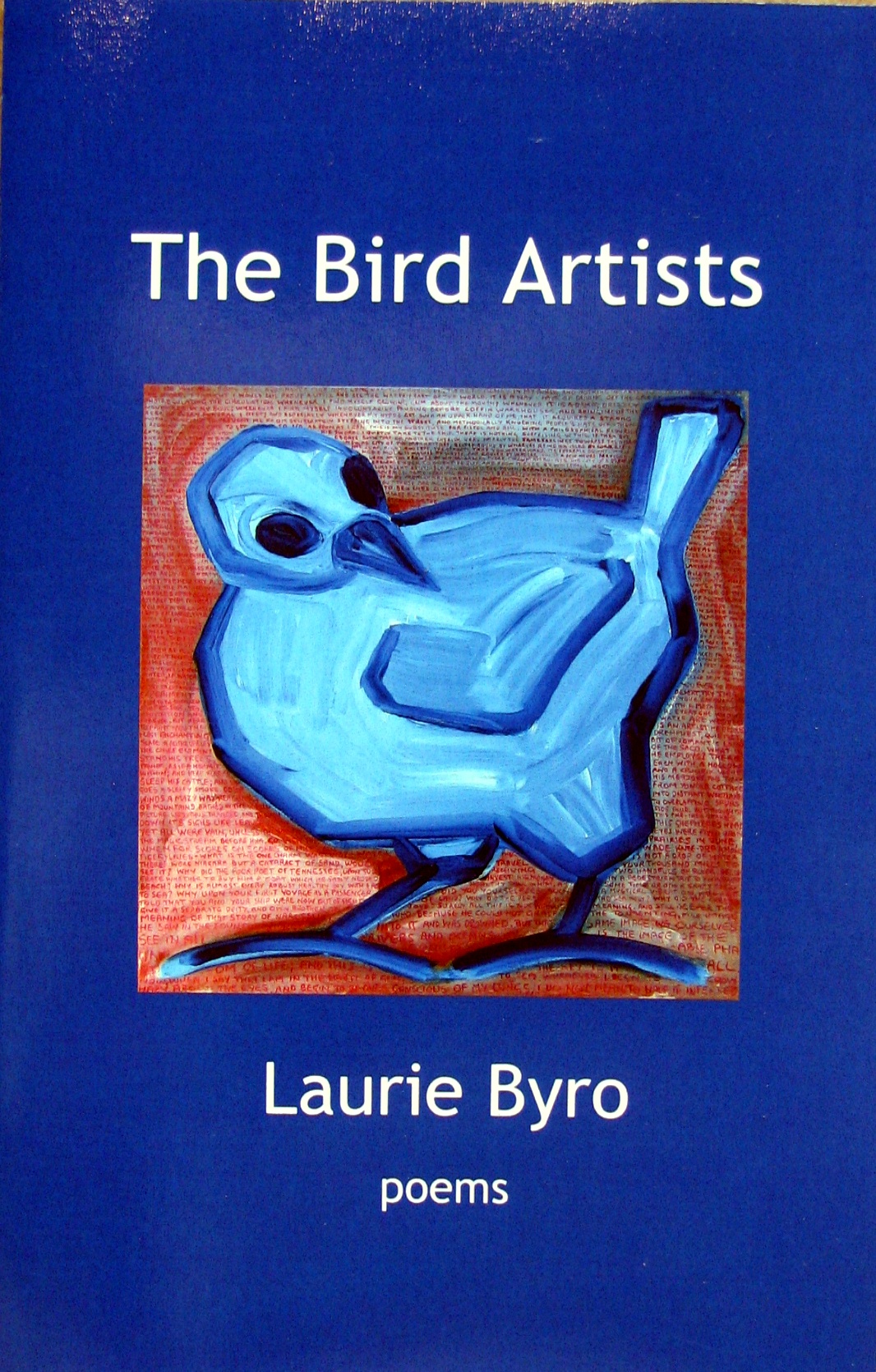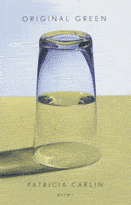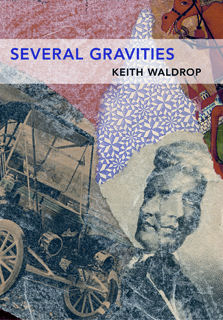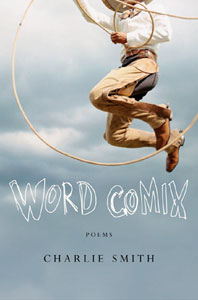

Reviews
In the Shadow of Wings — Laurie Byro's The Bird Artists

The Bird Artists
by Laurie Byro
H&H Press, 2009; 26 pages; $10.00
ISBN 978-1-61539-948-2, paper
Reviewed by Diana Manister
At least since Homer turned sailors into swine, animal symbolism has proved to be a handy device for depicting human experiences, usually of the baser sort. Blake and the later Romantic poets, especially Keats, valorized the animal energies that the Enlightenment had repressed. As Robert Bly describes the process in his book Leaping Poetry, non-human states became a favored topos of modern poets as stand-ins for the self. Read Review
The Liar's Paradox: Original Green
by Patricia Carlin

Original Green
by Patricia Carlin
Marsh Hawk Press; 2003; 77 pages; $12.95
ISBN 0-9724785-0-7, paper
www.marshhawkpress.org/Carlin.htm
Reviewed by Carl Rosenstock
The Liar's Paradox was invented by the 4th century B.C. philosopher Eubulides, the successor to Euclid. In its simplest form, it is the proposition "This statement is false" or (more to the point) "I am lying." A perfect, and perfectly vicious, circle. If true, it is false; and if false, it is true. A homely little puzzle, it has been used for millennia to exemplify the limits of logic. However, it is worth pointing out that this homely little paradox is the cornerstone of one of the major innovations of 20th century mathematics — Gödel's Theorem of Incompleteness. Read Review
Several Gravities
by Keith Waldrop

Several Gravities
by Keith Waldrop
Edited and with an introduction by Robert Seydel
Color & b/w illustrations
Siglio Press, 2009; 112 pages; $39.50
ISBN: 978-0-9799562-1-8, casebound
http://www.sigliopress.com
Reviewed by Sarah White
Keith Waldrop's career as a poet, publisher, translator, essayist and memoirist has never trapped him in a labyrinth of words. Or, if it has, he has regularly escaped from it into a forest of images. There he has fashioned hundreds of complex collages some thirty of which are reproduced in Several Gravities alongside the artist's statements on process, a selection of his poems, and an extensive editorial essay by his editor, Robert Seydel. Read Review
Falling Into Velazquez
by Mary Kaiser

Falling Into Velazquez
by Mary Kaiser
Winner, Slapering Hol Press Chapbook Competition 2006
Slapering Hol Press, 2007; 32 pages; $12.00
ISBN-13: 978-0970027771, paper
www.writerscenter.org/slaperinghol.html
Reviewed by Patricia Brody
Alabama-based poet Mary Kaiser's voluptuous debut collection, Falling Into Velazquez, draws the reader into its taut gallery of "passageways…blackened walls and a ring of eyes," where the masters and masterpieces wait, "to [flame you] blind." Yes, Kaiser sets up her series of ekphrastic — and often ecstatic — poems as a kind of tour: From the title poem, where the 5-year-old narrator wrestles a huge European Masterpieces onto her lap "The fat spine sinks between my legs" we follow this carefully curated exhibit, and we are taught the painter's language of color, light and consciousness through the perception of Kaiser, our guide. Read Review
Word Comix
by Charlie Smith

Word Comix
by Charlie Smith
W. W. Norton, 2009; 96 pages; $23.95
ISBN 978-0-393-06762-0, hardcover
http://books.wwnorton.com/books/Author.aspx?id=7107
Reviewed by Hilary Sideris
In his new book of poems, Word Comix, Charlie Smith continues to dazzle his readers with lines as surprising and strange as they are emotionally resonant. Smith eschews the autobiographical, and can be coolly ironic, but even in his irony there's a deep sadness, an acceptance, an embrace almost, of failure and loss. Read Review
POPPIN' JOHNNY
Poems by George Wallace

POPPIN' JOHNNY
by George Wallace
Three Rooms Press, 2010; 104 pages; $15.00
ISBN 978 0 9840700 2 2, paper
http://www.threeroomspress.blogspot.com
Reviewed by Angelo Verga
Influenced by a number of aesthetics, the poetry of George Wallace constitutes a departure from conventional academic poetry of the late 20th century; following paths suggested by French Surrealism and American Beat Prosody; his poems lean in the direction of invention and the imagination as much or more than to conventional narrative. Or to say it plainly, dear reader, he navigates between high and low diction with generosity, elegance and power. Read Review